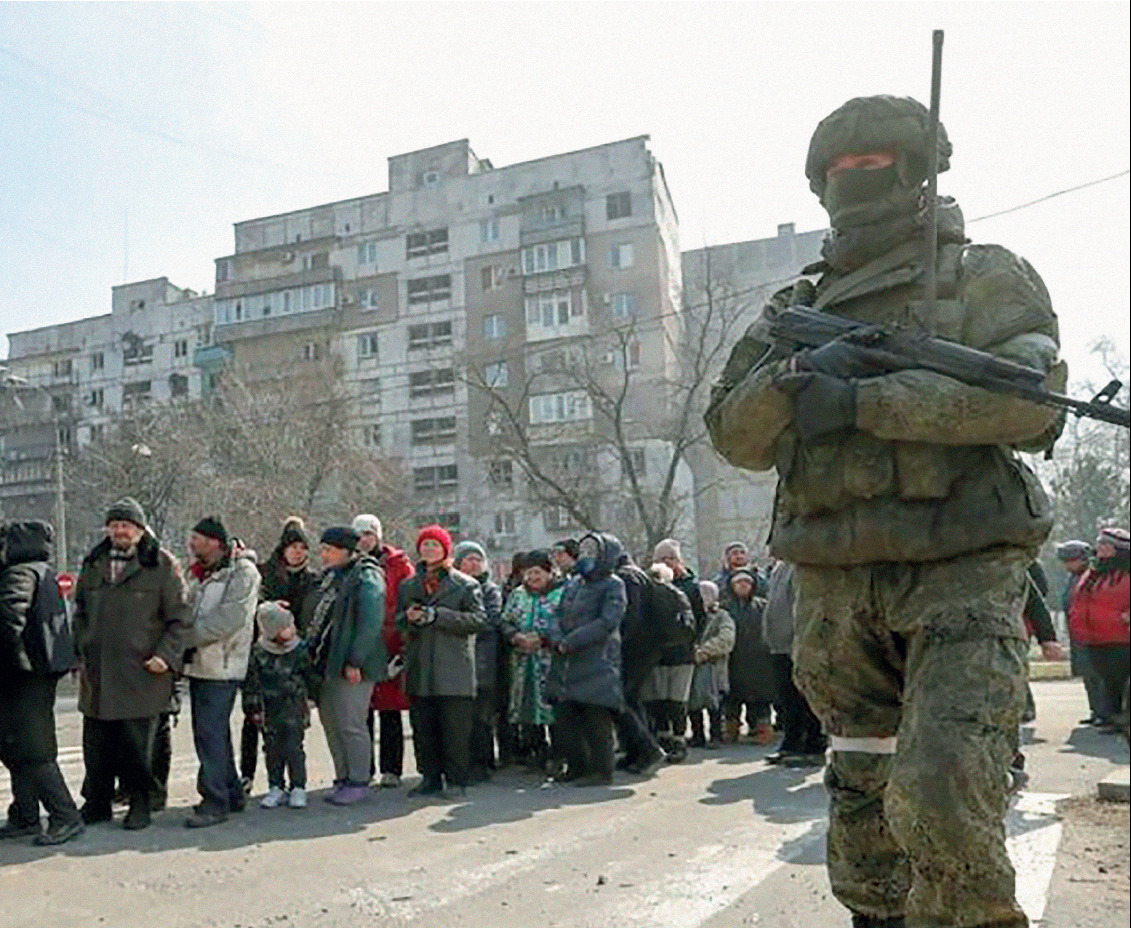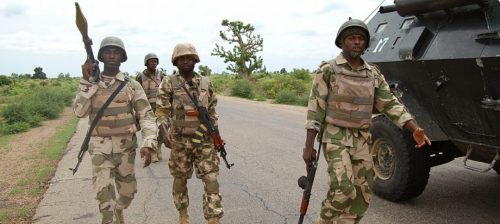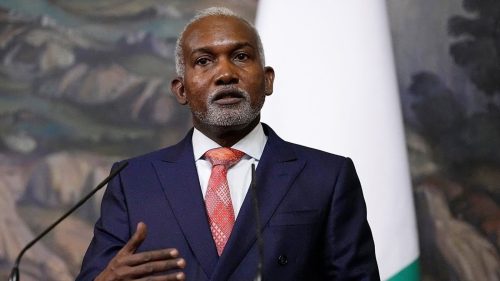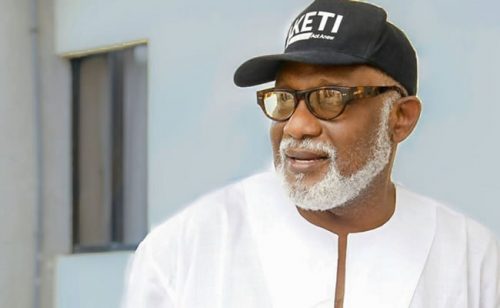Russia’s Atrocities Against Ukrainians In The Occupied Territories: Ethnic Cleansing And Beyond

In the spring of 2025, the BBC published an investigative report detailing Russia’s mass confiscation of real estate belonging to Ukrainian citizens who had fled the occupied city of Mariupol.
However, it is important to note that the unlawful expropriation of private property is but one facet of a broader, systematic campaign of persecution orchestrated by the Russian Federation.
This campaign targets Ukrainians who have either departed from the occupied territories, been forcibly deported, or remain on those lands for various reasons.
Filtration camps, forced deportations, the unlawful conscription of Ukrainians into the Russian military for deployment in infamous «meat assaults», coerced Russification, and the imposition of Russian citizenship – each of these acts, identified by UN Security Council Commission 780 (1992) as elements of «ethnic cleansing», form the pillars of Russia’s overarching policy in the occupied regions.
Such ethnic cleansing in the temporarily occupied territories (TOT) were addressed in April 2025 by Rein Tammsaar, Estonia’s Permanent Representative to the United Nations. In his remarks concerning negotiations on a potential freeze of Russia’s aggression against Ukraine, Tammsaar emphasised that these crimes are being committed amidst ongoing diplomatic processes.
Notably, he criticised the negotiations for focusing almost exclusively on territorial and security guarantees, while neglecting the human dimension of the conflict.
As of April 2025, according to the UNHCR, over 6.9 million Ukrainian refugees had been registered globally. Furthermore, approximately six million Ukrainian citizens including some 1.5 million children remain in the occupied territories, where they are subject to Russia’s criminal ethnic policy.
Thus, any legal evaluation of the Russian Federation’s actions and the development of protection mechanisms for Ukrainians in these regions require urgent and comprehensive attention.
THE INTERNATIONAL LEGAL CLASSIFICATION OF RUSSIA’S ETHNIC POLICY AND THE THREATS TO UKRAINIANS IN TOT
According to the United Nations Office on Genocide Prevention, «ethnic cleansing» is not formally recognised as a distinct crime under international law. Nevertheless, actions tantamount to ethnic cleansing may fall within the purview of the Genocide Convention and constitute crimes against humanity or war crimes.
The Office defines ethnic cleansing as a deliberate policy employed by one ethnic or religious group to remove another group from specific geographic areas through violence and terror.
The International Court of Justice (ICJ), in the case of Bosnia and Herzegovina v.Serbia (2007), underscored that Article II of the 1948 Genocide Convention requires proof of specific intent (dolus specialis) to destroy a group physically or biologically.
In the context of Russia’s war against Ukraine, such intent has been repeatedly evidenced in official statements by Russian officials. For instance, in April 2022, Dmitry Medvedev, Deputy Chairman of Russia’s Security Council, declared his hatred for Ukrainians and expressed his desire to see them «vanish.»
Moreover, a programmatic article published by the state-run RIA Novosti under the title «What Russia Should Do with Ukraine» openly advocates for the «de-Ukrainianisation» of the country.
Given such declared intent and the Parliamentary Assembly of the Council of Europe’s (PACE) recognition, on 27 April 2023, of the deportation and forcible transfer of Ukrainian children to Russia as acts of genocide, it is imperative to scrutinise Russia’s policies across all relevant domains.
FORCED DEPORTATIONS AS A FORM OF ETHNIC CLEANSING
According to investigations by Deutsche Welle, Russia continues to carry out mass deportations of Ukrainians from occupied territories. It is significant that such deportations were part of a premeditated state policy even prior to the full-scale invasion.
By that time, the Russian government had already prepared 188 Temporary Accommodation Points (TAPs) in the Rostov region, a number that had grown to 807 across Russia by October 2022.
The Ukrainian government estimates that between 1.5 and 2 million Ukrainian citizens have been forcibly relocated to Russia as of 2025.
Particularly vulnerable are the relatives of Ukrainian soldiers and civic activists. In December 2024, Ukrainian authorities officially recorded forced deportations of the families of Ukrainian Armed Forces personnel.
From the standpoint of international jurisprudence, it is essential to note the 2016 verdict of the International Criminal Tribunal for the former Yugoslavia (ICTY), which found that mass deportations and forced transfers of non-Serb populations during the Bosnian War (1992-1995) constituted a campaign of ethnic cleansing.
The ICTY held Radovan Karadžić, former Bosnian Serb leader, guilty of genocide, crimes against humanity, and violations of the laws of war, including the forced deportation of non-Serbs.
COERCED CITIZENSHIP AND RUSSIFICATION
A critical component of the Russian Federation’s deliberate strategy to purge Ukrainians from occupied territories is the forced imposition of Russian citizenship and systematic Russification.
According to Just Security, since 2014 – following the annexation of Crimea and occupation of parts of Donbas – Russian authorities have compelled millions of Ukrainians in occupied areas to acquire Russian citizenship. The process of «passportisation» accelerated dramatically after Russia seized additional territories in 2022.
A critical component of the Russian Federation’s deliberate strategy to purge Ukrainians from occupied territories is the forced imposition of Russian citizenship and systematic Russification
An investigation by the Associated Press revealed that Russia has rendered it nearly impossible to survive in the occupied regions without a Russian passport.
This policy was formalised in March 2025, when President Vladimir Putin signed a decree mandating that Ukrainian citizens in occupied territories or in Russia must obtain Russian citizenship by 10 September 2025 or leave.
British intelligence has assessed this decree as a coercive measure designed to drive Ukrainians out of the occupied regions and as an instrument of Russification, a policy previously identified as a form of ethnic cleansing.
FORCED CONSCRIPTION OF UKRAINIANS INTO THE RUSSIAN ARMED FORCES
Also deserving attention is the forcible conscription of Ukrainians in the occupied territories into the Russian military, a process often enabled by the imposed citizenship policies.
In October 2024, Russian occupation authorities in Kherson Oblast announced mandatory military service for men aged 18 to 30. Similar campaigns had previously taken place in the occupied parts of Donetsk, Luhansk, and Zaporizhzhia Oblasts.
As early as March 2022, Ukrainian intelligence reported that forcibly conscripted individuals from occupied Donbas were used as «combat reconnaissance» – sent to the frontlines without adequate training or weaponry to identify Ukrainian positions, resulting in mass casualties.
CULTURAL ASSIMILATION: RUSSIFICATION AND ERASURE OF UKRAINIAN IDENTITY
Equally concerning is the ongoing policy of cultural assimilation, a form of ethnic cleansing involving forced Russification and the systematic destruction of Ukrainian identity.
Although forced assimilation has not been classified as a separate crime under international tribunal jurisprudence, specific acts associated with it may constitute crimes against humanity or genocide.
In 2024, Human Rights Watch released a report titled Education Under Occupation: Forced Russification of the School System in Occupied Ukrainian Territories.
The report contains testimonies from Ukrainian teachers and parents describing armed soldiers enforcing the singing of the Russian anthem in schools, the abduction of school principals who resisted the adoption of Russian curricula, and the imposition of Russian textbooks.
Ukrainian language and literature have been removed from school programs, and cultural institutions such as theatres have been stripped of their Ukrainian status and repertoire.
Ukrainian history books are being confiscated and destroyed. Ukrainian media outlets are banned and replaced with Russian state-controlled broadcasts.
In light of the above, the development of mechanisms to protect Ukrainians in occupied territories must become a cornerstone of any diplomatic resolution.
If such guarantees are not established, millions of Ukrainians could be left defenceless under a frozen conflict, exposed to the genocidal policies of the Russian Federation.
The Fourth Geneva Convention (1949) and UN Security Council Resolution 1674 (2006) place the protection of human rights at the heart of conflict resolution.
This principle must be enshrined in all negotiation frameworks. Furthermore, international humanitarian law imposes clear obligations on occupying powers to safeguard the rights of civilians.
The Geneva Convention prohibits forced deportations and resettlements, mandates respect for national identity in education, and forbids the conscription of protected persons into the occupier’s armed forces.
Concrete mechanisms for the enforcement of these rights must be codified in any agreements governing the potential freezing of Russian aggression and ratified by all parties.
In light of the precedents established by Russia’s actions from 2014 to 2022, one of the essential tools for safeguarding human rights in TOT must be the deployment of a United Nations humanitarian mission to these areas.











